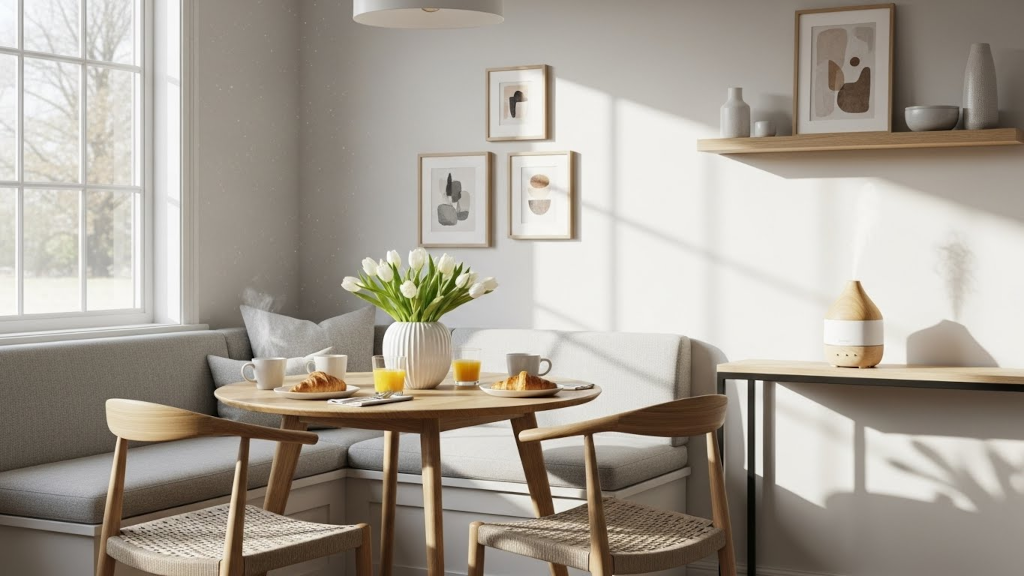Fragrance has a way of entering a space before anything else. It lingers in the air, often unnoticed at first, yet it’s one of the most emotionally charged elements in any environment. Unlike sight or sound, scent bypasses our conscious thinking and reaches straight into emotion, memory, and instinct. For those who curate their spaces intentionally, scent isn’t just a sensory detail—it’s a powerful emotional tool.
Understanding the psychology behind our reaction to fragrance reveals why we feel calmer, more focused, or even nostalgic in response to certain aromas. Scent plays a silent yet profound role in how we experience the world—and in how the world, in turn, affects us.
How the Brain Interprets Scent
When we encounter a smell, it travels through the nose to the olfactory bulb, which sends signals directly to the limbic system. This part of the brain governs emotions, memory, and behavior. Unlike other senses, scent doesn’t pass through the logical parts of the brain first—it reaches our emotional core immediately.
This direct pathway explains why a subtle aroma can influence our mood, evoke strong memories, or trigger automatic physiological reactions. The impact is immediate and often deeply personal. The brain doesn’t need to process the scent logically for the body to react emotionally.
The Relationship Between Scent and Memory
Our sense of smell is tightly linked to long term memory. A whiff of something familiar can transport us across decades—returning us to a place, a moment, or a feeling we haven’t consciously recalled in years. This connection between smell and recollection is sometimes referred to as the Proustian effect, where involuntary memories surface through scent.
Fragrance becomes the invisible architecture of experience. People often associate specific aromas with major life events: a grandmother’s perfume, the scent of a hotel lobby, or a favorite seasonal blend used at home. It’s no wonder that interior designers, wellness experts, and even hospitality brands leverage scent to create lasting emotional impressions.
Mood, Emotion, and Aroma
Different aromas trigger different emotional responses. While scent affects everyone uniquely, certain fragrance families are commonly linked to specific feelings.

For example:
-
Citrus oils like bergamot and lemon are associated with uplifting energy and mental clarity
-
Floral blends such as rose and jasmine often evoke calmness or tenderness
-
Woody notes, including sandalwood and cedar, can encourage grounding and stillness
-
Herbaceous scents, like rosemary or basil, have been studied for their focus-enhancing properties
-
Sweet, warm tones, such as vanilla, tend to create comfort and ease
These reactions aren’t just personal—they’re neurological. Aromas stimulate the amygdala and hippocampus, areas of the brain tied to emotion and associative memory. That’s why scent doesn’t just change how a room smells—it alters how the room makes you feel.
Scent and Emotional Regulation
Fragrance can support emotional regulation in both subtle and meaningful ways. Certain notes can reduce feelings of tension, ease symptoms of anxiety, or even help stabilize mood swings. For individuals navigating negative emotions, calming scents provide a sensory anchor—a tool to self-soothe without conscious effort.
This doesn’t mean scent replaces therapy or medication, but rather that it can serve as part of an emotional wellness practice. When paired with intentional routines—morning focus rituals, evening wind-downs, or mindful moments throughout the day—fragrance becomes a way to reset and realign emotionally.
Cognitive Function and Productivity
There is growing interest in how certain aromas influence mental performance. Researchers have found that some essential oils may help sharpen focus, improve alertness, and even support short-term recall. In workspaces, fragrance is no longer viewed as decorative, but functional.
Scents like eucalyptus, peppermint, and rosemary are often cited for their energizing properties, making them popular choices in offices or creative studios. Their invigorating character doesn’t demand attention, but gently promotes a sense of clarity and flow, creating an environment more conducive to productivity without the edge of overstimulation.
Creating a Scent-Responsive Home
Curating the right aromas throughout your space can transform how each room is experienced—physically and emotionally. The goal isn’t to overwhelm the senses, but to allow the air to carry subtle cues that enhance your lifestyle. Fragrance can be tailored by room and function, allowing each area of your home to support a different emotional rhythm.
For instance, light floral or citrus notes might greet guests in entryways, while more grounded scents—like amber or suede—could define a reading nook. In bathrooms, clean botanical blends echo spa-like calm, and bedrooms benefit from delicate, sleep-enhancing ingredients like lavender or vetiver. Each room becomes its own experience, shaped as much by aroma as by design.
Scent as a Design Element
Working with a carefully formulated scent isn’t about masking—it’s about amplifying the emotional texture of your home. Collaborating with a trusted scent provider or choosing blends crafted for ambient scenting ensures quality and consistency. Much like light and texture, fragrance becomes part of the design narrative, influencing how your home feels rather than just how it looks.
Final Thought
Scent moves through space like emotion—it’s subtle, intuitive, and impossible to ignore once you begin to notice it. From enhancing focus to softening stress, scent plays an important role in how we function and feel throughout the day.
As more people explore wellness beyond the visual and tactile, fragrance emerges as a powerful, underutilized tool. When chosen with care, it becomes more than a pleasant background—it becomes a form of support, expression, and connection. A fragrance doesn't just change a room—it changes how you live within it.








